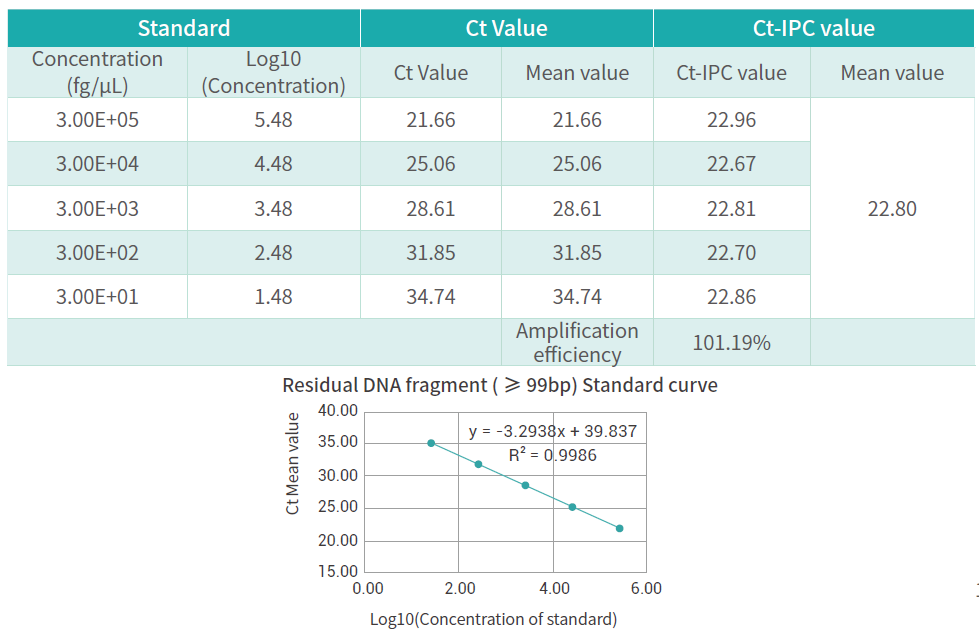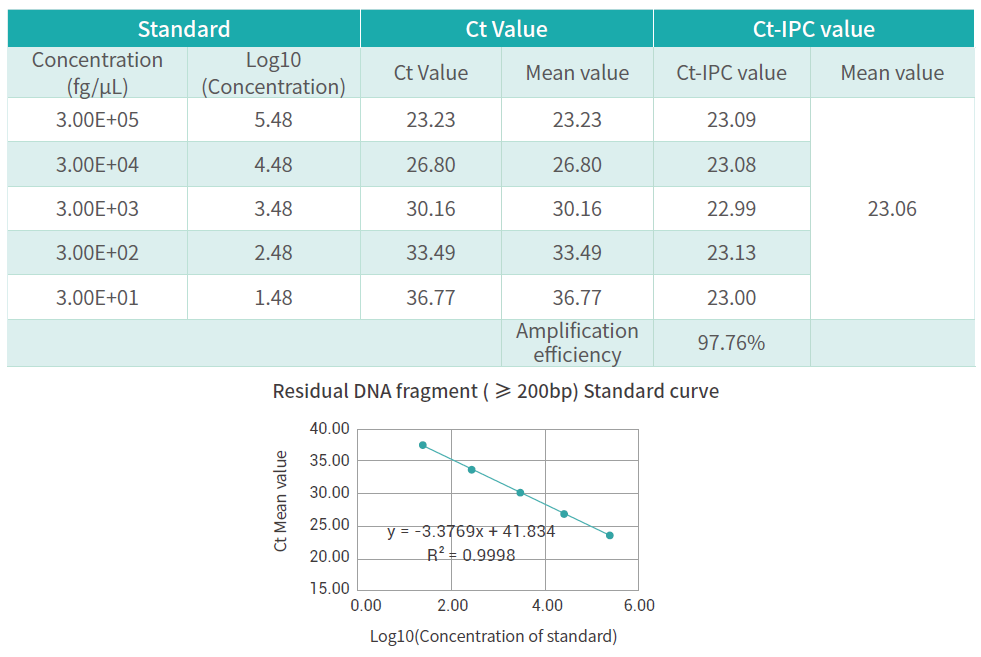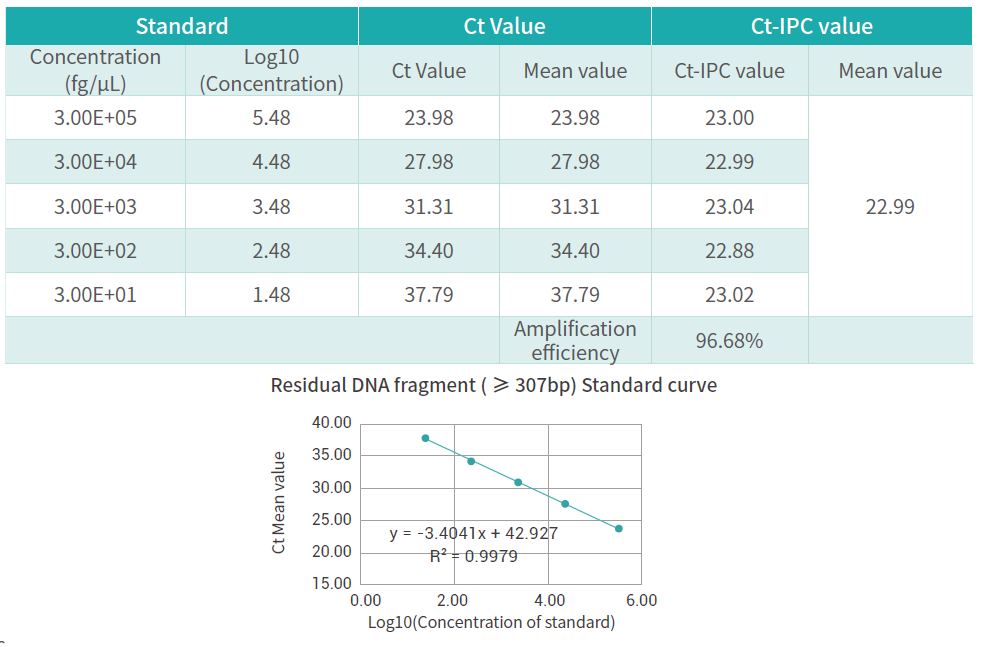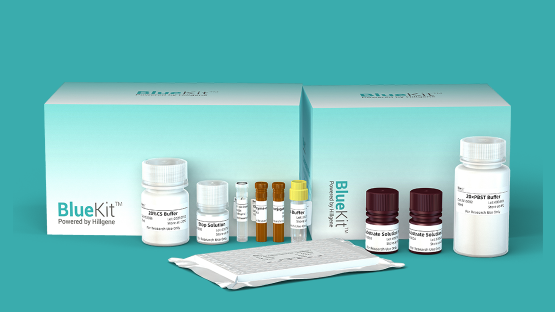293T Fragment Analysis Kit: qPCR Detection | BlueKit
293T Fragment Analysis Kit: qPCR Detection | BlueKit
$ {{single.sale_price}}
BlueKit is proud to introduce its state-of-the-art 293T Fragment Analysis Detection Kit, utilizing advanced qPCR techniques to offer unparalleled accuracy and efficiency in the detection of human residual DNA fragments. Designed to meet the rigorous demands of scientific research and biotechnological applications, this kit represents a significant advancement in the field of genetic analysis.
The realm of genetic research and biotechnology is continually evolving, demanding ever more precise and reliable methods for DNA fragment analysis. Recognizing this, the 293T Fragment Analysis Detection Kit has been meticulously developed to provide a comprehensive solution for the detection of residual DNA fragments, specifically targeting lengths of ≥ 99bp, ≥ 200bp, and ≥ 307bp. This precision is vitally important for researchers focusing on 293T cells, widely utilized in scientific studies for their robustness in expressing plasmids or other genetic material.
Our product not only stands out for its precision but also for its ease of use, offering a streamlined protocol that ensures results of the highest reliability. By incorporating the detection of ≥ 99bp, ≥ 200bp, and ≥ 307bp DNA fragments, the kit provides a versatile tool that caters to a wide range of research needs, from gene therapy to vaccine development and beyond. Whether you're investigating gene expression, conducting vaccine research, or exploring the limits of gene therapy, the 293T Fragment Analysis Detection Kit from BlueKit is your partner in unlocking the complexities of the genome. With this kit, BlueKit reaffirms its commitment to supporting the scientific community by providing cutting-edge tools that enhance the accuracy and scope of research. By choosing the 293T Fragment Analysis Detection Kit, you're not just acquiring a product; you're gaining a reliable ally in the pursuit of scientific excellence and innovation.
|
Residual DNA fragment ( ≥ 99bp) Detection
|

|
Residual DNA fragment ( ≥ 200bp) Detection
|

|
Residual DNA fragment ( ≥ 307bp) Detection
|

Our product not only stands out for its precision but also for its ease of use, offering a streamlined protocol that ensures results of the highest reliability. By incorporating the detection of ≥ 99bp, ≥ 200bp, and ≥ 307bp DNA fragments, the kit provides a versatile tool that caters to a wide range of research needs, from gene therapy to vaccine development and beyond. Whether you're investigating gene expression, conducting vaccine research, or exploring the limits of gene therapy, the 293T Fragment Analysis Detection Kit from BlueKit is your partner in unlocking the complexities of the genome. With this kit, BlueKit reaffirms its commitment to supporting the scientific community by providing cutting-edge tools that enhance the accuracy and scope of research. By choosing the 293T Fragment Analysis Detection Kit, you're not just acquiring a product; you're gaining a reliable ally in the pursuit of scientific excellence and innovation.
{{item.c_type}}
{{item.title}}
{{item.c_time_limit}}
{{item.title}}
Overview
Protocols
Specifications
Shipping & Returns
Video Recording
Cat.No. HG-HF001 $3,785.00
This kit is designed for the quantitative detection of the size distribution of Human residual host cell DNA fragments in intermediates, semi-finished and finished products of various biological products.
This kit adopts the principle of PCR fluorescent probe method to quantitatively detect the size distribution of human residual host cell DNA fragments in the sample. The kit features three different amplified fragments (99 bp, 200 bp and 307 bp), and the Human DNA quantification reference is used to make standard curves for different amplified fragments respectively, and the fragment distribution of Human residual DNA in the sample is analyzed through the ratio of different sizes of fragments.
The kit is a rapid, specific and reliable device, with the minimum detection limit reaching fg level.
| Performance |
Assay range |
|
|
Limit of quantitation |
|
|
|
Precision |
|














